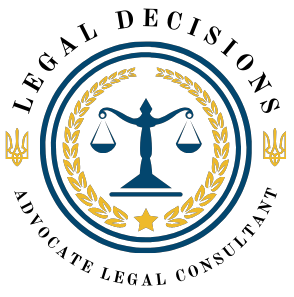Internal regulations, policies, job descriptions
Elements that should be included in the charter of a non-governmental organization:
- Name of the NGO: The legal name of the NGO.
- Type of document: Regulations.
- Date of approval: Information about the date of approval of the regulation.
- Place of publication: The place where the regulation was issued.
- Title: The title of the document, which can be combined with the document type, for example, “Regulations on membership fees.”
- Text: The content of the regulation, including general provisions, information on the rights and obligations of members, and rules of operation.
- Signature of the authorized person: The signature of the representative of the organization authorized to sign the document.
- Approval stamp: An indication of the body or official who approved the regulations.
- Document visa: A mark or seal that confirms the recognition and legitimacy of a document.
The structure of the text of the bylaws may include the following sections:
- Types of regulations of non-governmental organizations:
- Regulations on the organization: General provisions about the structure and tasks of the organization.
- General provisions on the work of the organization: Information about the formation and organization of the organization’s work.
- On membership in the organization: Terms and conditions for accepting new members.
- About contributions: Information on the procedure of contributions and their accounting.
- On involvement of other persons in the organization’s activities: Terms and conditions of cooperation and involvement of third parties in the organization’s activities.
- On confidentiality: Provisions for the protection of confidential information.
- Remember that drafting bylaws requires compliance with the law and can be done profitably with the help of experienced lawyers to ensure that the documents are correct and legitimate.
According to Ukrainian law, non-governmental organizations are defined as non-governmental entities whose primary purpose is not to make a profit. These organizations are formed on the basis of common interests of their members in the areas of culture, education, sports, ecology, etc., and their functioning is ensured by contributions from their members.
There are several categories of contributions:
Entrance and membership fees: Determined by the founders and include amounts paid by the organization’s members.
One-time targeted transfers: Funds that come from sponsors and are used for specific purposes.
Funds from sponsors: Provided by external sources to support the activities of the organization.
The main source of capital for a non-governmental organization is contributions from its members.
It is important to keep in mind that membership fees can only be received to a bank account or cash desk from organizations registered as legal entities.
The procedure for making payment for membership in an NGO is determined by the relevant regulation, which must take into account the current legislation. The details of such a regulation must be correctly filled in, including:
Name of the organization.
Type of document – regulations.
Date and place of drafting.
A title that can be combined with the word “Regulations”.
The text.
Signature of the authorized person.
Stamp of approval.
Visas.
Given the complexity of drafting and executing regulations, it is recommended to contact lawyers who will take into account the requirements of the law and help you fill out the documents correctly. If you are looking for professional assistance, Legal Decisions is ready to provide quality advice and prepare the necessary documents in accordance with your wishes.
In accordance with the current legislation of Ukraine, information about an individual or other information to which access is restricted to a certain person, whether an individual or a legal entity, is considered confidential. Such information may be disclosed only with the consent of the person concerned, except in cases provided for by law.
There are certain areas where restricting access to information is unacceptable:
- The state of the environment, food, and household goods.
Natural disasters and accidents that pose a threat to human life and health.
The standard of living, health and social security of the population.
Violations of human rights and freedoms, illegal actions of government agencies.
Confidential information can be protected by creating a special regulation and familiarizing stakeholders with its contents.
A regulation is defined as an organizational document that regulates the rules of the company’s operation, establishes the rights, duties and responsibilities of employees. When drafting it, it is necessary to comply with the current charter and relevant laws, as well as to take into account the requirements for document execution.
The structure of a confidential information policy may include the following sections:
- General provisions.
List of data that is confidential.
Access procedure and responsibilities of employees.
Liability for violation of the requirements of the regulation.
Appendix with signatures of employees confirming familiarization and responsibility.
For the regulation to be effective, it is important to take into account the specific nature of the company’s activities and the peculiarities of information processing. It is recommended to consult a lawyer to ensure that the documentation is correct and legal. If you have a need for effective drafting of regulations, please contact Legal Decisions specialists who will be happy to provide advice and prepare the necessary documents.
Non-governmental organizations and associations operate in accordance with their charters, the main document that defines the rules of operation and relations with other entities, as well as the rights and obligations of their members. An important and mandatory part of this document is the provision governing the procedure for holding general meetings.
The general meeting is the highest governing body of a non-governmental organization. The section on this meeting, which is often called “Governing Bodies” or “Management Bodies”, contains a variety of information. However, there are points that must be considered.
MAIN ASPECTS OF THE CHARTER RELATED TO THE GENERAL MEETING
- Voting rights of participants at the general meeting.
- Minimum frequency of convening the meeting.
- Determination of the percentage of votes to pass a resolution.
- List of issues to be resolved at the general meeting.
- As a rule, the section on governing bodies also includes the rules of work of the board, chairman and executive secretary.
Even if there are various templates of non-governmental organization charters available on the Internet, it is recommended to contact lawyers who can draw up a document in a quality manner and carefully review each of its clauses. Contacting the competent specialists from Legal Solutions will provide you with clearly defined provisions on the general meeting, and, if necessary, a fully drafted charter.
WHAT WE NEED TO GET STARTED
- Your wishes regarding the general meeting.
- Information about the governing bodies and their names.
- Other information.
If you have any questions or need advice on organizing the meeting, our specialists are ready to answer them. Contact us by phone using the feedback form on the website or leave a message in the messenger.
In addition to the completeness of the information in the charter, it is important to ensure that it is properly executed and contains all the necessary details.
DETAILS THAT SHOULD BE IN THE CHARTER
- Name of the non-governmental organization.
- Type of document – “Charter”.
- Date and place of drafting.
- The text of the charter.
- Vulture.
- Information on state registration.
If you choose our services for drafting a document, you do not need to worry about the correctness of the charter – we will do this work efficiently, affordably and in the shortest possible time. Contact us with any questions – we are always ready to help you.
Internal documentation is developed to optimize business processes in the company to achieve maximum efficiency. Regulations and instructions define clear responsibilities of employees and promote optimal interaction between departments. Strict adherence to the rules and responsibilities of team members helps to achieve the company’s goals as quickly as possible. In addition, properly executed documents ensure that unexpected situations can be resolved legally and efficiently and allow you to pass inspections by regulatory authorities with confidence.
A WIDE RANGE OF DOCUMENTS TO BE CREATED
- Articles of Association and its amendments.
- Regulations on trade secrets and confidential information.
- Regulations on structural subdivisions.
- Internal labor regulations.
- Staffing table.
- Documents on remuneration of employees.
- Regulations on material liability.
- Regulations on intellectual property.
- Regulations on membership fees for non-governmental organizations.
- Instructions, orders, regulations and other documents.
We cooperate with both commercial and non-profit organizations. For more information on the development of a specific document, please contact us by phone, email or messenger. If you are located in Kyiv or Lviv, we are also ready to hold a personal consultation.
Do you have any questions?
Call us now and get answers to all your questions!
+38 050 698-15-21+38 063 803-90-83
